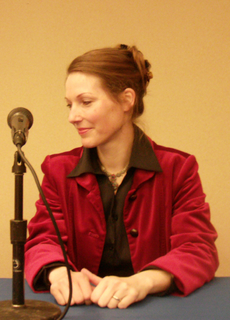A Quote by Michael Ondaatje
You're getting everyone's point of view at the same time, which, for me, is the perfect state for a novel: a cubist state, the cubist novel.
Related Quotes
Israel is a fulfilled dream. Nothing that exists here existed here a hundred years ago. "The State of the Jews" was not a title of a country. It was a title of a futuristic novel. A little more than a hundred years ago, "Tel Aviv" was not a city. It was a title of another novel written by the same author. The "Return to Zion" was a name of another novel. There was a bookshelf. There was no state. There was no nation. All you can see, if you look through the window - everything you see is a fulfillment of dreams, different dreams.
Suspending moral judgment is not the immorality of the novel; it is its morality. The morality that stands against the ineradicable human habit of judging instantly, ceaselessly, and everyone; of judging before, and in the absence of, understanding. From the viewpoint of the novel's wisdom, that fervid readiness to judge is the most detestable stupidity, the most pernicious evil.
I don't impose political responsibilities on my fiction. The last thing I would ever want to do, for example, is write a novel that would appear to want to tell people what to think about the immigration debate, and I would never write a novel whose sole ambition was to give a "positive" view of immigrants. I'm for open borders, by the way - down with the nation state!
A novelist can shift view-point if it comes off. ... Indeed, this power to expand and contract perception (of which the shifting view-point is a symptom), this right to intermittent knowledge - I find one of the great advantages of the novel-form ... this intermittence lends in the long run variety and colour to the experiences we receive.
A little more than a hundred years ago, "Tel Aviv" was not a city. It was a title of a novel written by an author. The "Return to Zion" was a name of another novel. There was a bookshelf. There was no country. There was no state. There was no nation. There was no physical Jewish reality in this country.
The error of Socrates must be attributed to the false notion of unity from which he starts. Unity there should be, both of the family and of the state, but in some respects only. For there is a point at which a state may attain such a degree of unity as to be no longer a state, or at which, without actually ceasing to exist, it will become an inferior state, like harmony passing into unison, or rhythm which has been reduced to a single foot. The state, as I was saying, is a plurality which should be united and made into a community by education





































